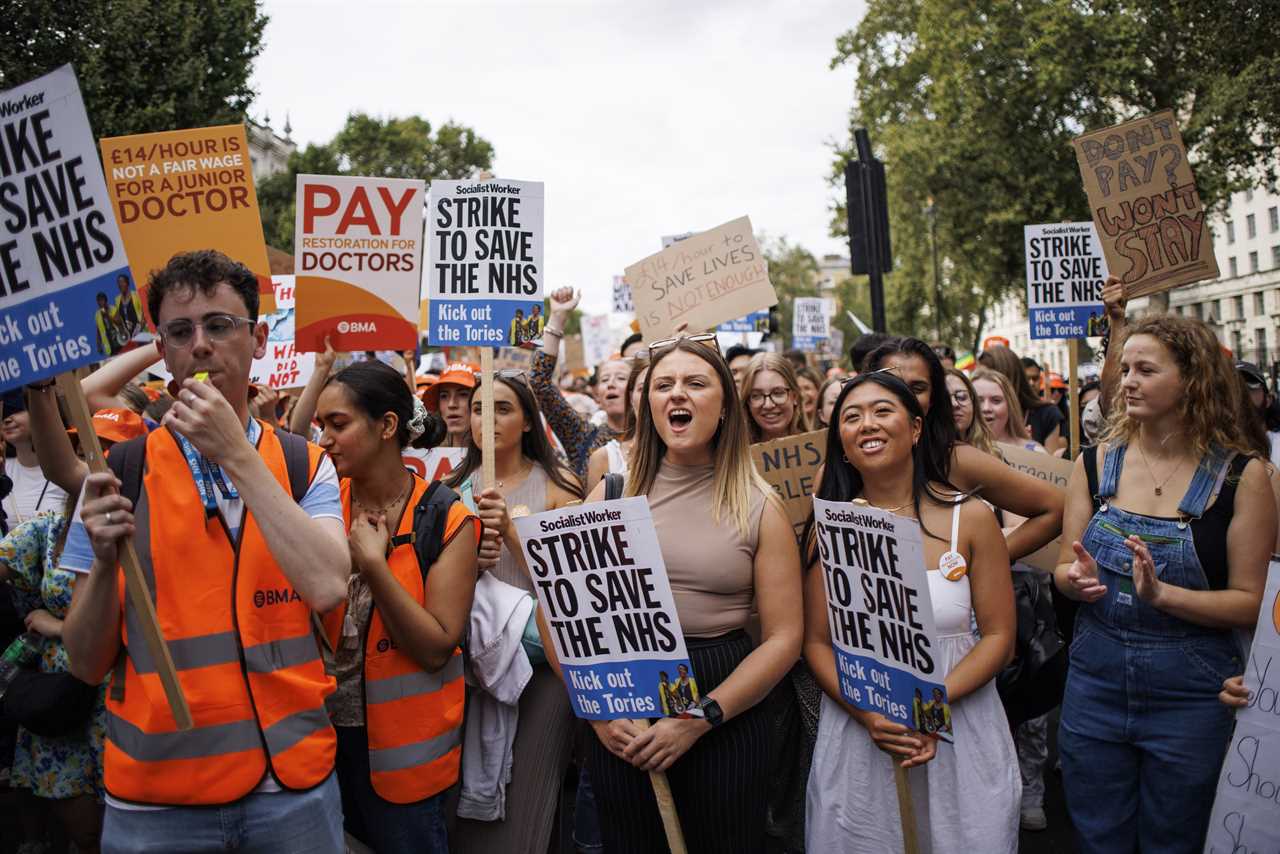
Respite from overwork
Militant junior doctors have claimed that the strikes that disrupted NHS services across Britain provided them with a much-needed break from being overworked. Dr. Emma Runswick, Deputy Chair of the British Medical Association (BMA) council, stated that the 18-month industrial action allowed them to spend time with friends, which their demanding rota usually prevents.
Threatening more strikes
Despite a 22 per cent pay rise from the new Labour government and the title change to "resident doctors," Dr. Runswick hinted at the possibility of future strikes if the government does not continue on the path to pay restoration. This stance has raised concerns about the impact on public health services.
A costly affair
The NHS strikes cost taxpayers nearly £1.7 billion, leading to the cancellation of over 1.5 million appointments. Dr. Runswick likened the BMA to the radical RMT union that caused disruptions in the country's rail system through walkouts and suggested potential coordination with other unions for future actions.
Government's response
In response to the comments, Shadow Health Secretary Ed Argar criticized the strikes, stating they were damaging to the health service and left many patients without care. He attributed the situation to the actions of the previous government and warned of potential consequences if the pay restoration journey is not continued.

No need for future strikes
A BMA spokesperson emphasized that strike action should not have been necessary but was a result of government inaction. They highlighted the importance of ongoing pay restoration to avoid future conflicts, as many doctors have faced significant pay cuts since 2008 due to demanding rotas.






